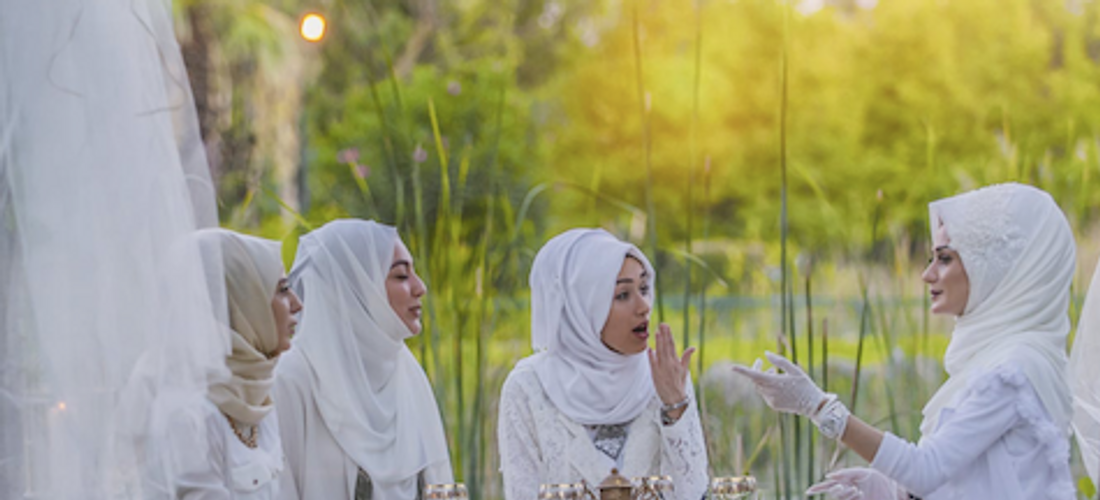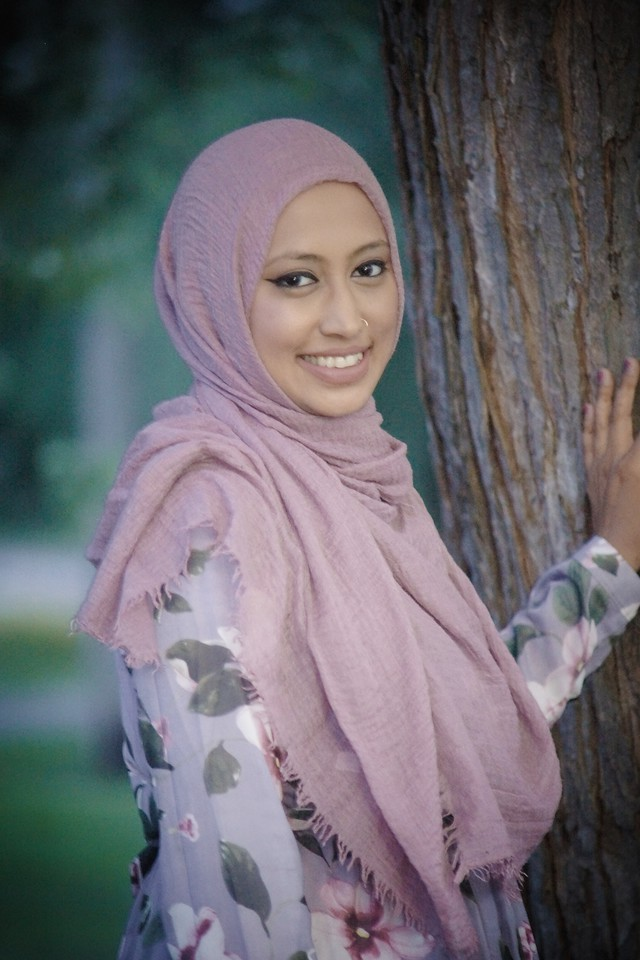The Challenges Muslim Women Face When Finding A Spouse
Lifestyle
|
Oct 9, 2018
|
8 MIN READ

The concept of marriage (and especially 'wife') has evolved over the centuries, from women expected to take on the housewife and caretaker roles, to the modern-day “superwoman” expecting and attempting to do it all – or a mix of both. Muslim women face challenges to find that perfect spouse who meets their needs emotionally, spiritually and physically, while also finding meaning and purpose in their own lives. The obstacles can seem to be mounting for Muslimahs who are met with double standards on everything from looks, to financial security, to religiosity compared to men.

Here is a list of ten obstacles/concerns that Muslim women face when it comes to marriage:
1. Traditional Gender Roles: Women are often reminded of their internal clocks when it comes 'time' to get married. Across the board, women in their 20's are always asked why they are not married yet (let's not even talk about what unmarried women in their 30's and beyond hear!). In the Muslim community, women are scrutinized, and it is often assumed that if a woman is not married young, there is either something wrong with her, she’s sinning, or she’s become “outdated.” However, the general trend of getting married later is becoming more common as women juggle the many factors in getting married.
Time magazine featured this story that explores the landscape of modern-day marriages, including one woman’s journey to marry at 35. She said she struggled with societal norms while seeing her friends marry in their late 20s, but then later saw some struggle with divorce.
Another piece in the Guardian explores the trend of Muslim women outnumbering Muslim men in communities in the West due to men marrying women from their countries of origin, marrying Christian and Jewish women, and educational disparities, as well as men seeking more “traditional women” to mimic the traditional lifestyle for themselves.
2. Religious Expectations: When it comes to religiosity, women are told if a man is Muslim, comes from a “good practicing family” or simply “prays five times a day,” then he is good enough for a girl. Yet at the same time, Muslim women are either expected to wear hijab, abaya and/or niqab, or ridiculed for not looking “hot” and wearing religious garb. One woman said she felt as if expecting her future spouse to have a beard was “asking for too much.” Another woman said she wanted a spouse with a beard AND good character. Sometimes Muslim women are told to look at deen more than looks and are judged when “waiting for the right man”. Men, on the other hand, are often encouraged to seek an attractive spouse.
Abu Hurayrah, may Allah (S) be pleased with him, narrated that the Prophet, (S), said: “A woman is married for four (reasons): her wealth, noble ancestry, beauty, and religion. Choose the religious woman lest your hand is stuck to dust (because of destitution).” [Al-Bukhari and Muslim]

3. Cultural Baggage: Qualified suitors are often overlooked or dismissed when parents and society focus on cultural compatibility rather than personal compatibility. There is an assumption by many parents that along with retaining a culture, children from the same background will “click,” although often times they may differ in other aspects of their life such as lifestyle, purpose, educational and career goals. Salika Chowdhury from Michigan said although she was open to marrying outside of her culture, her family wanted her to marry within their Bangladeshi culture. She said this worked out for her in the long run. “I realized after I got married that coming from a similar background, we had a better understanding of our specific customs. I didn’t have to explain things to him.” Other women have had happy intercultural marriages despite the parental pressures.
4. Being Rushed Into Marriage: Women are often encouraged to marry young, which means they don’t always have ample opportunities to make a well-informed decision. One woman said she met five or six suitors, while her husband met 40 women before choosing her. Some families tell the couple to rush into marriage to “avoid sinning,” by loosely defining getting to know one another within Islamic parameters as sinning.
On the opposite spectrum, some families are harsh on couples who choose their own spouse and seek their parents’ stamp of approval afterwards. Parents may purposely delay the process, hoping the couple will go their separate ways, or they may outright say no if their daughter or son chooses a spouse for themselves. Some parents take forever (or never) to come around.
Another phenomenon I’ve witnessed is the concept of rushing a marriage due to an ill relative. For example, a dying father wants to see his son married off. While there is nothing wrong with a father wanting to see his son married, rushing the process due to this can cause strain at the beginning of a new marriage, and in some cases put undue pressure on the new bride to take care of that relative.
5. Lack of Resources To Get Married: Converts, widows, divorcees, and other marginalized women who may not have the right support system, wali or resources to meet and marry a suitor tend to rely on other systems to help them get married, such as the marriage workshops at ISNA conventions, or an Islamic figure such as an imam. This process, illustrated in AboutIslam.net, can be daunting for women and tasking for imams who have to tend to multiple concerns within their respective masjid or community.
Many cultures have lavish traditions throughout the process of getting married. For example, South Asians rely on the family to bring a proposal from the groom’s family to the bride’s family to seal the deal. If your family is not up to par with representing your needs or finding qualified suitors, this can become an inevitable roadblock to marriage. There are also expensive and outrageous requests, often made of young suitors who aren't yet financially able to afford such things that can, unfortunately, be a roadblock to getting married.
Generally, Muslim women are expected to rely financially on their family, both pre-marriage and through the marriage process. However, nowadays women are saving up for their own marriages, climbing the career ladder more than before, and financially supporting their changing family dynamics throughout their lives.

6. Education: Women are pursuing further education and want more qualified men who match them in intellectual, spiritual and general lifestyle. This article by Muslim Matters thoroughly discusses many of the complications Muslimahs face while attempting to get married. “There is an extraordinary number of very educated women in their thirties and above who have not found a spouse. As intelligent, educated, single women venture to find men to set the cornerstone for a family, they cannot find suitable matches. Women in their late 20s and early 30s, urged to be educated all their lives, settle into their careers or studies, suddenly become less desirable mates to some men.”
Salika said sharing a similar education helps connect a couple. “I wanted to have someone who I could have conversations with, whether it was about the current political climate or historical events.” Education can also become a barrier for two individuals who may value it differently or have various levels of education.
7. Financial Security: More women are joining the workforce or taking on entrepreneurship opportunities rather than relying solely on their father or a potential future spouse to financially take care of them. Women are taking more control over their own situation, which can either drive them to choose to delay marriage or intimidate potential spouses.
8. Men Asking Women To “Take Care of Their Parents” & Give Up Dreams: When it comes to seeing a spouse as a partner, historically women have been expected to hold their end of the bargain higher. Many women have been asked to stop working, or to take care of their in-laws and give up pursuing their dreams. While some women said they were willing to take care of their in-laws, they were not comfortable with giving up individual and career goals – and shouldn't have to be.

9. The Lack of Understanding About Healthy Relationships: As mentioned in a previous article I wrote about domestic violence, this plagues one out of every three women at some point in her lifetime. When it comes to relationships, men and women both lack adequate resources and training about what it means to be in a healthy relationship. Cultural norms may also restrict showing affection outwardly or knowing how to cater to the emotional needs of the spouses.
10. Lack of Self Love: Oftentimes, women are simply not taught to value themselves. As Nasihah Barlaskar of Michigan writes:
“We were raised to think we have to change ourselves - our bodies, our appearance, our beliefs, our professional goals, our role as a daughter-in-law and in the kitchen, and mold onto whatever our husbands want. If we were encouraged to pursue whatever goals we wanted despite what a potential rishta wanted in us, love ourselves in our own skin and shape, and embrace our differences without having to fit the standards of what is defined as beauty today, we would have much higher self-esteem and confidence and possibly not suffer from depression because we weren't good enough.
The struggles start with how we value ourselves and this is obviously because of how we are nurtured. So when a guy rejects us because we don't fit specific beauty guidelines or what professional field we want to pursue or our cooking skills, instead of thinking ‘I can do better than a guy who can't see my potential,’ we think we need to change ourselves.”
As a community, we need to do better. We need to support our women and uplift them – and help them in the process of getting married rather than put obstacles in their paths. Hanging on the "old ways of doing things", ignorant beliefs, suppressive norms, and even just plain old double standards will not help anyone, especially not two people seeking to start a life and family together.

Love this article? Share it with your friends!
What do you think is the greatest challenge facing Muslim women in finding a good spouse? Comment below!
Subscribe to be the first to know about new product releases, styling ideas and more.
What products are you interested in?

